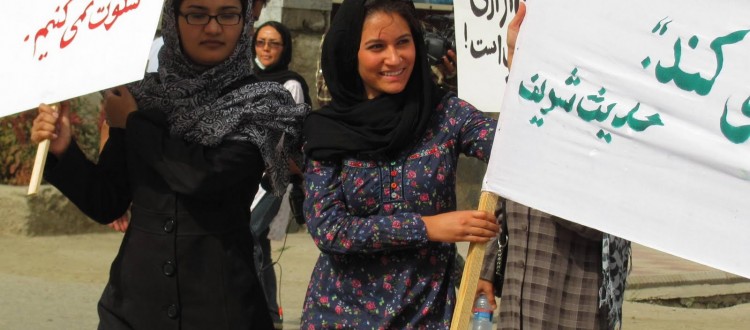Building national stability in Afghanistan
Afghanistan’s domestic stability can best be fostered in a climate of regional stability. The historic nuclear deal between the US and Iran has enhanced the prospects of the latter positively benefiting Afghanistan’s own transition.
| Suggested Reading | Conflict Background | GCCT |
By Kirthi Jayakumar
With the number of US troops on Afghan soil being reduced, there is now a more urgent need for national stability, which can best be fostered in a climate of regional stability. Against this backdrop, the historic nuclear deal between the US and Iran seems like a linchpin in establishing such stability.
While the US and Iran nuclear deal has received much attention for the myriad dimensions it takes in the larger context of nuclear weapons and energy, there are multiple ripple effects for Asia and beyond. As it stands, the embargoes and sanctions that no longer apply to Iran make life easier for its civilians, whilst demonstrating promise for potential future stability built on the roots of pluralism. This has several ramifications for the Middle East, undoubtedly, and inevitably for Afghanistan.
Whether it was in the Persian influences of yore, or in the movement of refugees and asylum seekers from Afghanistan into Iran during the tougher times of war, the interests that Iran vests in the central Asian country looks like a promising advancement for Afghanistan’s future. For most of Afghanistan’s history with Iran, relations have centred around political struggle – be it in the form of the Saudi-Iran rivalry, or in the form of the interest-centered focus of the West in trying to keep Iran under its thumb, and even a group of elitist Afghans who were anti-Iran.
Iran has stood by Afghanistan in the past. The 2001 Bonn Agreement, for instance, culminated in the establishment of the political order that currently exists in Afghanistan. Furthermore, the Afghan National Unity Government that was established last year was the product of a cooperative endeavour between Iran and the US. If Iran and the US cooperated despite having such differences between them before the nuclear deal, the deal itself signifies a positive change that will only bring in more positivity – with spillover effects for Afghanistan.
A stable Afghanistan is also a major advantage for Iran, with a great deal of promise for a collaborative future of regional security. There are, for the most part, many common elements between Afghanistan and Iran. From colonialism to radicalisation and politicisation of Islam, and Western involvement, both nations have had their own share of struggles. In sharp contrast with Pakistan, Afghanistan and Iran are advancing towards democracy. With this trend of democratisation, it is fully possible that there will be a whole new reality – one that is not tied with sectarian politics and one that is not in any way confined to oppressive autocracy.
Even as Asia is transitioning in parts towards different political trajectories, Afghanistan’s future can be couched in stability if Iran plays its part in shaping the country’s future. Afghanistan’s other regional allies, India and Pakistan, have their own share of differences with one another. With Iran’s own stability having become a reality, the spillover into Afghanistan will ensure a stronger and more robust nation. Afghanistan’s peaceful future depends on a sense of unity within and beyond. All its neighbours in the region need to be on the same page to ensure regional stability. Peace for Afghanistan needs external oversight, but not external meddling. Its history of neighbouring nations that have tried to manipulate the process of peacebuilding in pursuit of their own vested goals now needs to change. With Iran’s stability, it looks like a strong possibility.
Kirthi Jayakumar is a Lawyer, specialized in public international law and human rights. A graduate of the School of Excellence in Law, Chennai, Kirthi has diversified into research and writing on public international law and human rights. She has worked as a UN Volunteer, specializing in human rights research in Africa, India and Central Asia and the Middle East. She also runs a journal and consultancy that focuses on international law, called A38.



















